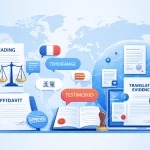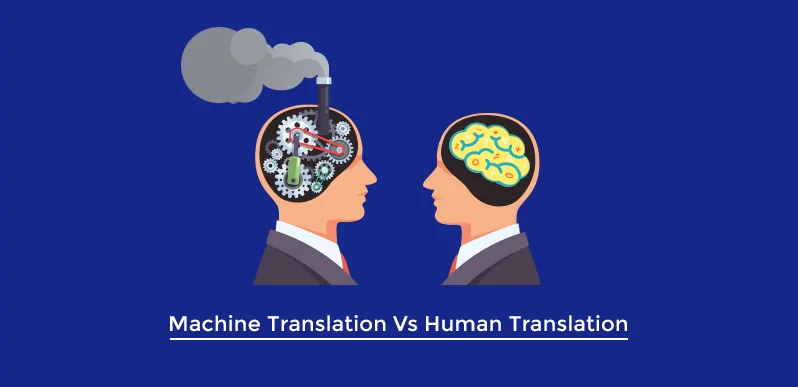Dictionaries are an important part of life. In most instances, dictionaries are in the form of books. However, in recent times, you can find most dictionaries on various websites on the Internet. Dictionaries have more than one purpose, such as the translation from one language to another, as well as providing the meaning of words. The focus of this discussion is on the importance of dictionary in translation.
Even though there are many free translation apps available, such as Google Translate, Microsoft Translator, iTranslate Voice 3, and many others, the dictionary will give translations with deeper understanding. Simply put, it will give the translator a deeper understanding and aid in adding the right nuances to the text.
The Translator and the Importance of Dictionary in Translation
Perhaps the question on your mind is whether a translator needs a dictionary. This is especially true for the translators at Circle Translations. Using dictionaries is part of the many tools we use, even though our translators are humans.
We have an arsenal of highly qualified human translators in over a hundred languages. Even though they are highly proficient, it is important to know that they understand the importance of dictionary work in their translations.
Why Does a Translator Need a Dictionary?
One of the main reasons a translator would need to use a dictionary is to create a translation that has a fuller meaning. When translating a text from one language to another, certain words might have more than one meaning. The importance of dictionary in translation might, therefore, be extremely helpful.
This is extremely important, especially when the translator is tasked with translating older documents. The semantics and meanings of words often change over time. It is, therefore, necessary to consult a dictionary to assist. Translating from one language to another makes it even more necessary. It is important for the translator to verify the meaning and how the word was used in the context of the text.
Even though most translators have a good command of the languages they translate, it is important to use a dictionary to ensure that the translation is near perfect. The translator should not depend on mere memory alone. This makes the importance of dictionary usage an important tool for translators.
Another point here is that, should the translator decline the use of a dictionary, the translation might be limited to familiar words. The translation might, therefore, have less depth than the original text. By using a dictionary, the translation will have more of a human touch.
The Purpose of Using a Dictionary
A translator needs to use a dictionary in order to not only translate the text but also provide meaning for it. For translators, it should, therefore, not be a simple matter of finding a word in the dictionary. Hence, two types of dictionaries could be used to aid in translations. The tools that make the case for the importance of dictionary in translation are bilingual as well as monolingual dictionaries.
- 102. Dictionaries
These are dictionaries that would simply give the translation of a word. Having said that, though, there are those that give several options as well. Most bilingual dictionaries, however, provide a simple, one-to-one translation. These dictionaries have a role to play, and should not be discarded as part of the toolkit.
In order for the translation to be an excellent piece of work, a physical dictionary search will be most helpful. For this reason, Circle Translations employs human translators to do the translations for our clients.
- 101. Dictionaries
No translator should hinge their translations on the use of a bilingual dictionary alone. The importance of dictionary usage for a translator becomes even more critical in the form of monolingual dictionaries. These dictionaries expound more on words as opposed to simply giving their equivalents.
It shows the importance of dictionary in translation, as it provides a fuller understanding of a particular word in the other language. Instead of just giving a one-to-one translation, it provides a definition and association of the word in the language in question. The translator, therefore, has a fuller palette from which to choose the translation that fits the context best.
- 152. Dictionaries
The multilingual dictionary is especially useful to the translator, who has the ability to translate several languages. It could be helpful in giving a broader perspective on a particular word. This is possible as the dictionary will give the translation in several languages.
How Should the Translator Use Dictionaries?
In the first instance, the translators should have a good command of the languages they are translating. The dictionary should, therefore, be part of other tools they use. The translator should see it as an aid and not as a crutch.
It is important for the translator to use a dictionary, or more than one, to understand a particular document in its full context. The source text is particularly important to understand in order to create an excellent target text. It is, therefore, best practice to make use of a dictionary or two. The best ones to use are bilingual and monolingual dictionaries.
The best way to clarify the context of a word within a text is to start with the bilingual dictionary. To gain further insight into the word in its context, the translator should make use of the monolingual dictionary.
Summary
Most translators do not rely on their own knowledge alone. They do make use of dictionaries to ensure an excellent final translation. In the final analysis, Circle Translations provides clients with translators who do believe in the importance of dictionary in translation.
FAQs: Grammar-Translation Method (GTM)
What is the grammar translation method?
A traditional language-teaching approach that teaches grammar rules and vocabulary through explicit explanation and translation of sentences or texts.
Why do some classes still use it?
It’s easy to structure, works with large classes, aligns with test prep, and needs few resources (blackboard + textbook).
Is GTM good for speaking and listening?
Not really. GTM prioritizes reading, writing, and accuracy; speaking and listening get minimal practice.
What are simple GTM exercises I can try?
-
Translate short sentences L2 → L1 and L1 → L2
-
Parse a paragraph and label parts of speech/clauses
-
Conjugate verbs across tenses; rewrite sentences to match a rule
-
Spot and correct grammar errors in a short text
How does GTM compare with communicative methods?
-
GTM: rule-focused, translation-heavy, accuracy over fluency.
-
Communicative (CLT/TBLT): meaning-focused, real tasks, fluency and interaction in authentic contexts.
Subtitles

Professional and Accurate Subtitle Services for your Videos.
- Video subtitles specifically tailor-made for improving accessibility.
- Using highly experienced subtitlers with years of industry experience.
- Professionally written and expertly timed.
Translation

We help the world’s top companies translate their content in over 73 languages!
- We localize content for internet websites, games, travel, cryptocurrencies, and more
- Expand your global audience by adding different languages.
- We work only with qualified translators and experienced content creators
Audio translation

Ensuring full accessibility for Blind and visual impaired audiences.
- Visual descriptive events as they occur in the video.
- Working with top audio describers to perfectly describe what is happening on-screen
- Professional sound recording.











